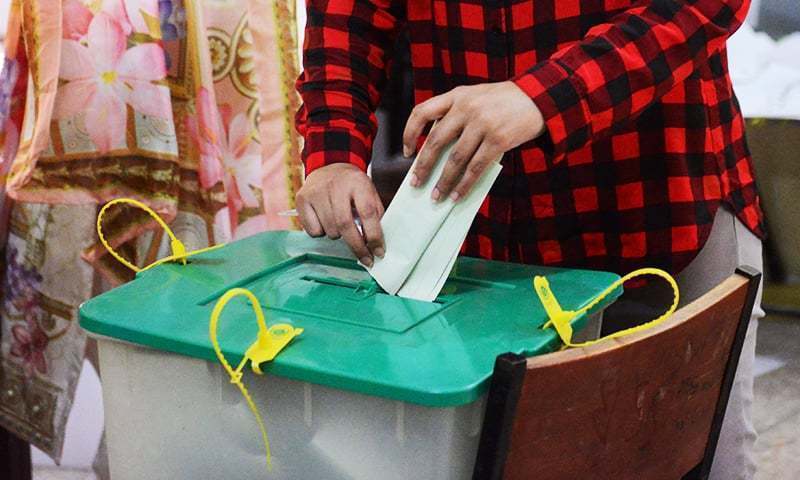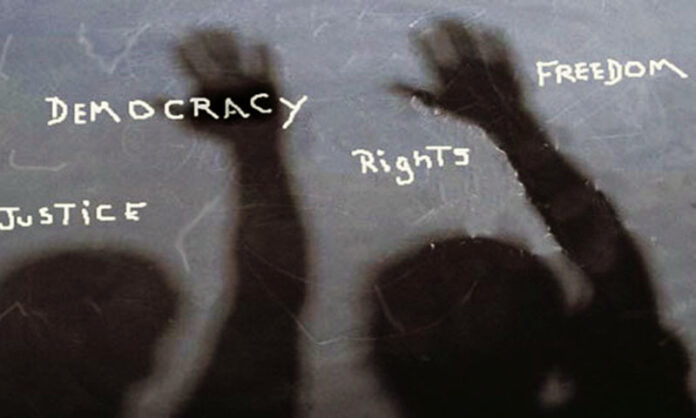Dear Readers,
We live in on age in which on increasing number of nations are embracing democracy as a system of government. In some cases the political landscape of many nations has been characterized by processes, at times arduous, of democratization or struggle for democracy. After more than six decades of achieving independence, Pakistan continues to be a weak democracy, albeit for a number of reason’s that contributed to such a state of affairs and is still struggling hard to achieve political civility and maturity. It needs to chart a correct direction, if not, it is bound to get lost. One reason for the situation that prevails is the fact that most of our ‘democratically elected leaders owe their power to colonial institutions. No democratic regime has ever tried to reform the fundamentals of statehood because of which the autocratic style of governance, dynasty politics, concentration of power, etc. keep on flourishing; all being symptomatic of oligarchy. For a nation to be able to reap the rewards and dividends offered by democracy, its leaders must be willing to undertake serious institutional reforms and must also be prepared to distribute power broadly. Since this has not happened in Pakistan countless negative repercussions have been heaped upon the country. Today Pakistan stands at the crossroads of its destiny, facing internal and external threats to its national security which have co-relationship with each other directly or indirectly.
There should be no doubt that there has to be an uninterrupted commitment to nurturing democracy among those who have been chosen to govern Pakistan and also among those stakeholders who may not be part of the governance for the sake of this country’s future as a stable and prosperous state. For the benefit of readers I am reproducing my article “NATIONAL SECURITY GUARDS DEMOCRATIC DISPENSATION”
Developed together by the institutions of the Pakistani state (including the military), national security has to be based on a common understanding about what the national interest of Pakistan actually is, what the parameters and where its limits are, and how the national interest can be separated from the disparate political, economic and military interests that might exist. A consistent national security strategy and a common understanding about what is Pakistan’s national interest can only be developed by a process of informed analysis and debate thereof between the major institutions of the state, with the people of Pakistan an integral part of the process, not only involved and taken into confidence about it but with vital interest in the outcome.
The community, which is the basic ingredient of democracy, has not been involved in building the narrative of good governance. Malfunctioning of civilian government institutions over a protracted time has dire repercussions of the inner security of the country. Failed functions may be because of various reasons, the prime among these being a penchant for nepotism and corruption, the essence of national security is to ensure accountability across the board. Almost extinct all across the world, feudalism is not only alive and well but flourishing in Pakistan. A close cousin of feudalism, nepotism ensures inefficiency and bad governance. This lethal combination of corruption and nepotism does not let democracy function effectively, the stakeholders losing control over their destiny at not only both the community and state level but also in the layers of governance in-between.
Material functional national security factors has a spiritual dimension, national unity among a country’s population. A national state founded on ideology rather than historical and geographical boundaries like Pakistan has its fundamental basis on the premise that the inhabitants of the country form a national identify with their country and accept all Pakistanis as equal parts of that nation. If this is not the case those excluded or treated unequally, like East Pakistanis in 1971, would find it difficult to identify whole-heartedly with the nation and the country. This creates political and consequently, security- related problems. In a country like Pakistan where the population differs not only in their ethnicity and culture, and the various sects of religion but also with regard to their social organization (tribal, biradaris) coupled with economic under-development, there are multiple hazards that can and do challenge national unity.
Erdogan’s election in Turkey last Sunday by the country’s first direct Presidential vote with an absolute majority of 51.8% was only possible because he and his party had delivered good governance as Prime Minister for 12 years in a very polarized society. It highlights that viz (1) for elections to be truly credible all most important posts must be filled by a direct vote by the entire electorate, not an indirect vote by a handful that can be easily manipulated (2) an absolute majority of more than 50% of the vote is essential, in Erdogan’s case victory in the first round ensured he would not face a run-off against the second highest vote getter in the runoff elections. In a country like Pakistan with ethnic, sectarian and tribal differences “proportional representation” in order of priority of the percentage of votes is a must to ensure all stakeholders in the electorate have a voice in Parliament and do not feel excluded, ie 25% of the seats in the National and Provincial Assemblies must be reserved for losing candidates who must be deemed elected according to the percentage of individual party votes. The Senate must be voted in by direct elections, the present indirect election is subject to fraud and manipulation. A footproof electoral system is required to ensure that fraud is not perpetuated at the ballot box, we would not have had the “Long March” today if the sanctity of the electoral process had not been called into question.

What type of democracy do we practice today if we cannot trust the electorate to govern themselves at the grassroots level? Without Local Bodies elections being conducted before the General Elections by direct vote for the “Provincial Assemblies”, the National Assembly and the Senate, the democratic dispensation that we have today is a farce. Moreover all candidates for the higher Assemblies (and the Senate) must be an elected ab-initio at the “Local Bodies” level. Without electoral standing in his (or her) community, can the candidates be credible democratically at a higher level?
Accountability of the potential candidates is a must. Any candidate aspiring for elections must file the assets and income tax his (or her) statement and that of the immediate family, these must be audited by two audit firms on the State Bank of Pakistan (SBP) approved list. Any discrepancy would mean automatic disqualification. No accountability will ever be complete without applying the laws of perjury (that do exist but are never applied) strictly. Can we afford to have habitual liars and perennial cheats as our leaders? By the same token anyone found guilty of vote and/or ballot box tampering (or assisting in this) should be disqualified alongwith members of his immediate family.
Last but not the least the guardians of our world, the Armed Forces and the superior judiciary, must analyse what are the factors turned their image into dirt over the years, they must correct the anomalies. For the Armed Forces it has meant over 5000 dead and 20000 injured’ on the road back to redemption, the superior judiciary has come back somewhat but still needs to carry out detailed self-accountability.
Our politicians (and some of our military leaders) mistake their personal and selfish interests for the national ones, they want to pursue the exercise of power exclusively while paying only lip-service to the essence of national security, the legitimate interests and aspirations of the masses. One cannot hove the elements of national security guarding democratic dispensation without adhering to the spirit and content of good governance.




